In recent years, due to the increasing interest in online privacy protection, there has been a growing movement to restrict the use of "cookies" that store browsing history in web browsers. As a result, significant changes are undergoing in the data usage practices of advertising technology industry, such as the implementation of GDPR (General Data Protection Regulation) in the EU and restrictions on the use of third-party cookies in web browsers by IOS systems.
A resent survey conducts by Omnitrack demonstrates that many marketers have felt the impact of these restrictions on their marketing activities and are becoming more and more ugent to find countermeasures.
●Do you think your marketing campaigns will be affected by cookie?(n=127)
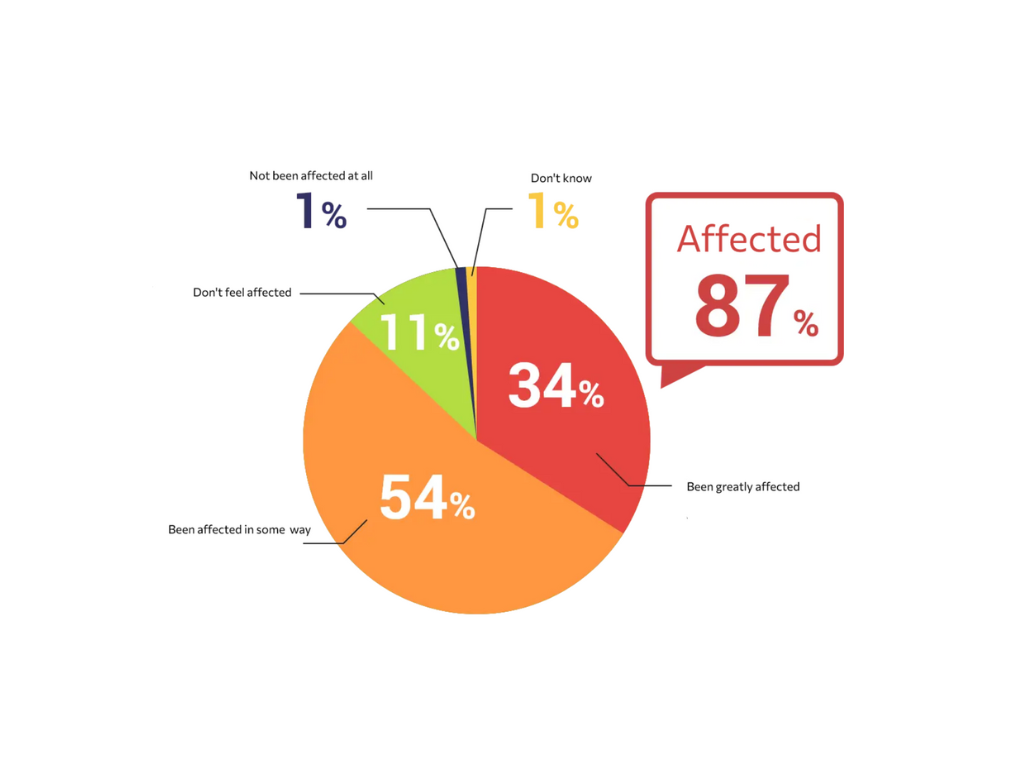
●Are you interested in solutions to mitigate the impact of cookie restriction?(n=176)
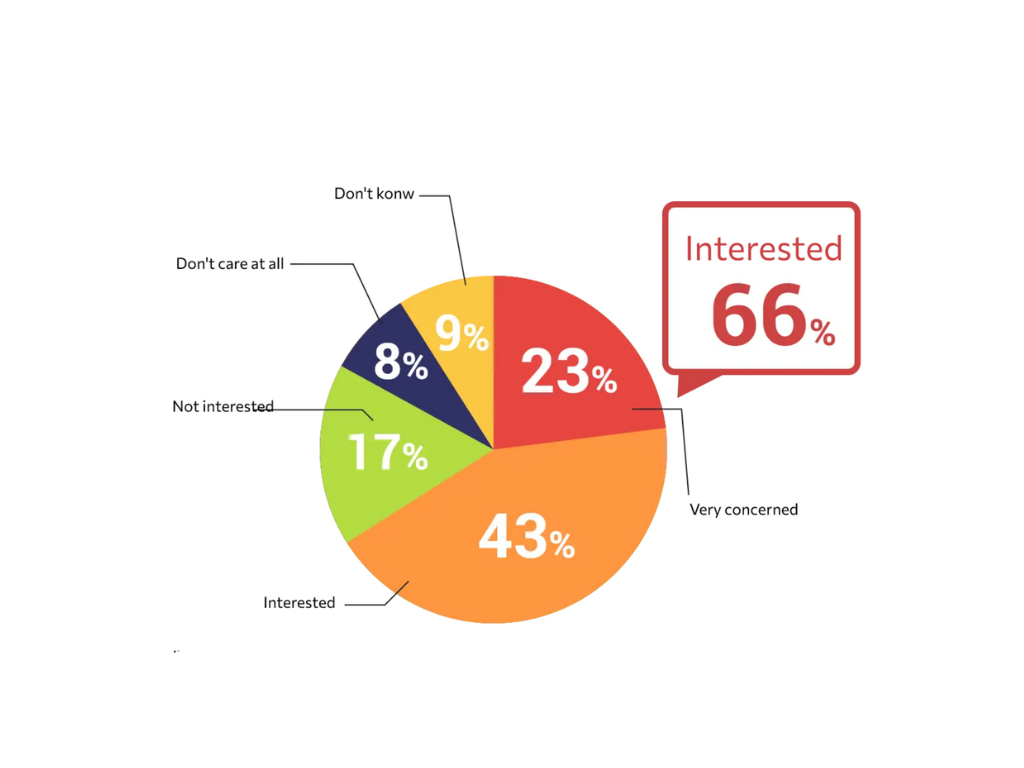
Firstly, What is "Cookie"
Cookie is a mechanism used by web browsers such as Safari and Chrome to temporarily store logs of website visits and inputted user information. Specifically, cookie technology is used to store login information for registered members of a website, data on products added to a shopping cart, and for advertising purposes.
There are two types of Cookies
First-party cookies
It comes from the same domain as the website domain you are visiting. They are used by the website you visited(e-commerce website), for example, to maintain the login status and retain product information in a shopping cart.
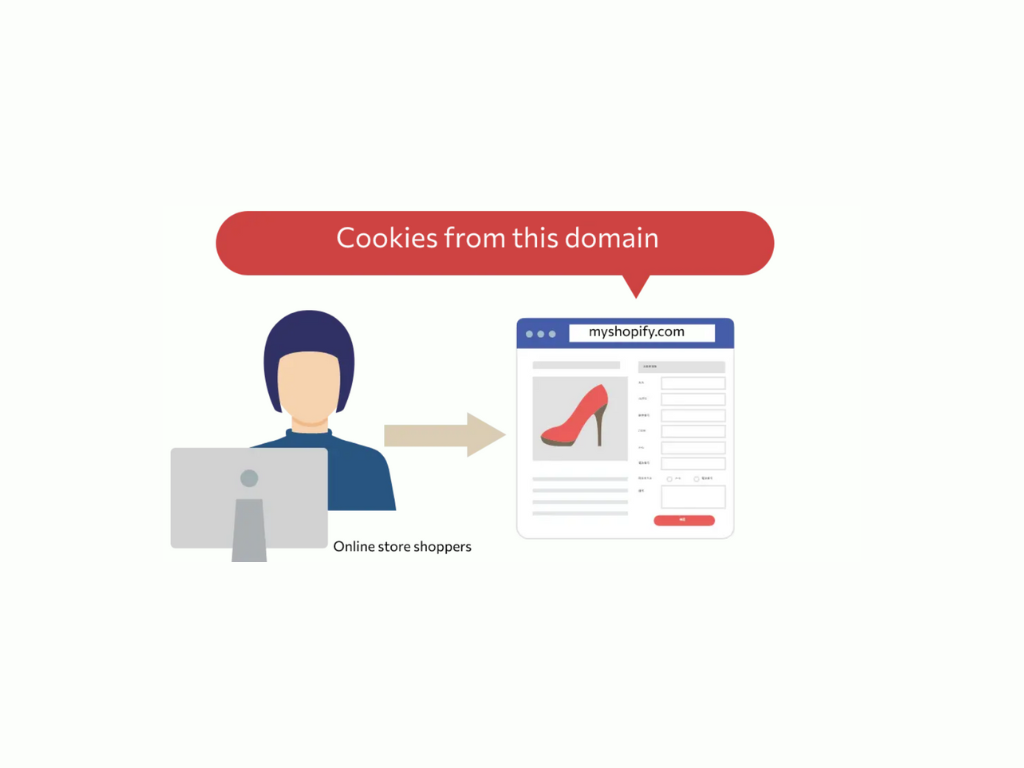
Third-party cookies
It is sent from domains outside of the website you are visiting. They are used outside of the website visited (other company's website) and to display product advertisements that are tailored to the user's browsing habits beyond the site's boundaries.
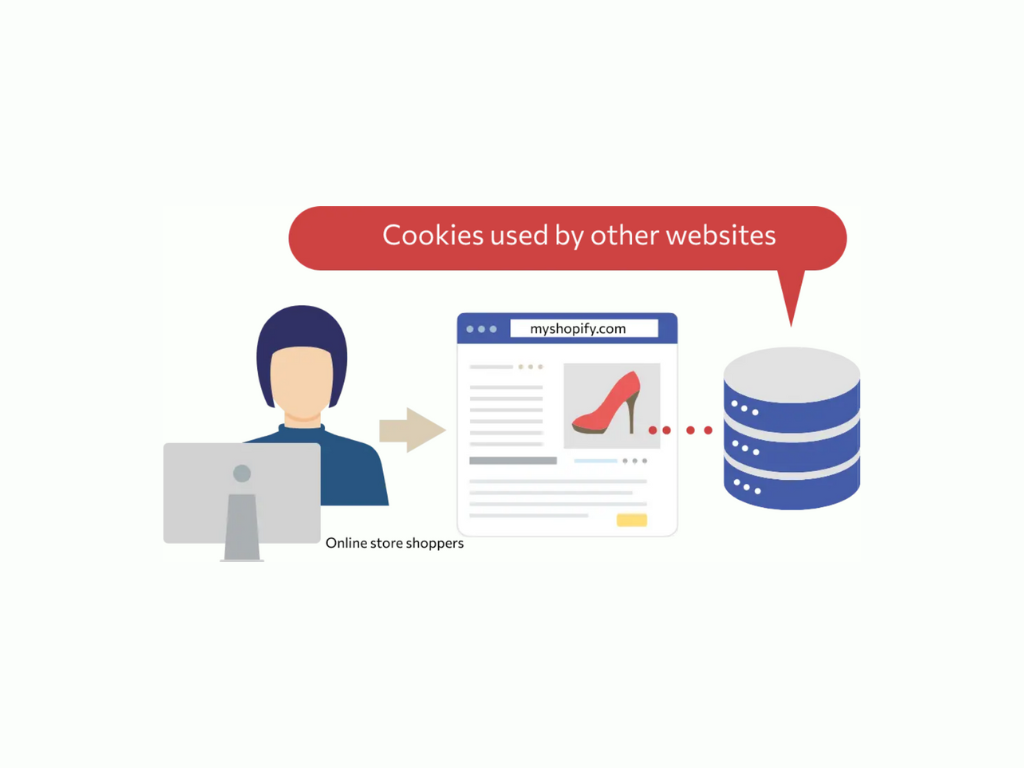
What is the Restriction of Cookie Usage
Apple, which provides the web browser Safari, has already introduced the "ITP (Intelligent Tracking Prevention)" feature to prevent internal tracking in iOS and has restricted the use of third-party cookies. Similarly, Google, which provides the web browser Chrome, has announced that it will end support for third-party cookies by the end of 2023. Therefore, advertising companies urgently need to implement data acquisition methods that do not rely on third-party cookies.
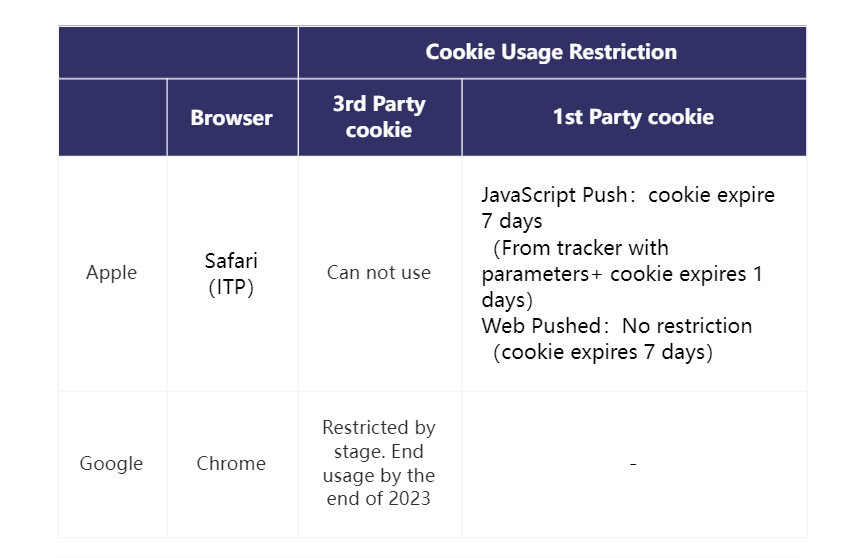
What marketers need to pay attention to?
Restriction of third-party cookies usage has various impacts on digital marketing. Particularly, it has a significant impact on online advertising, as distribution methods that rely on third-party cookies (such as retargeting ads and ads relying on user matching) become increasingly difficult. Additionally, it becomes more and more impossible to get accurate conversion rates from various media platforms ads managers, making it harder to understand the cost-effectiveness of advertising spending.
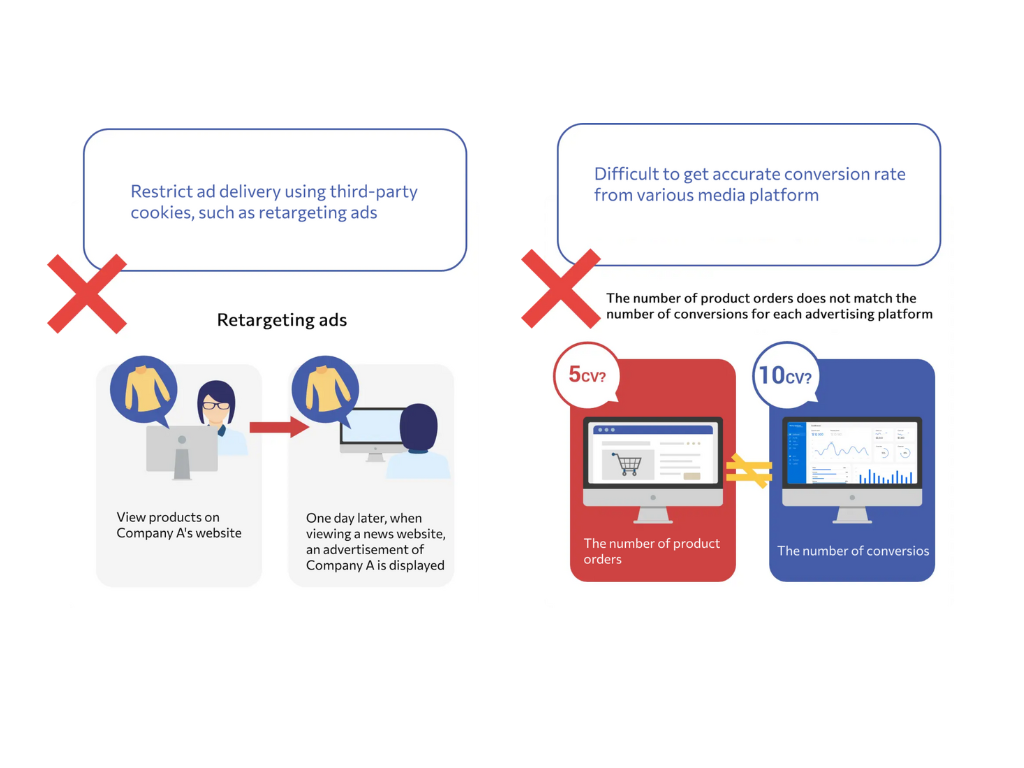
However, first-party cookies issued by web servers can still be used in the future. Using third-party attribution tools that rely on first-party cookies is essential as a "data acquisition method that does not rely on third-party cookies."
Omnitrack uses first-party cookies issued by web servers to measure data within the scope of ITP, that is why we can measure and attribute conversions more trustworthy.